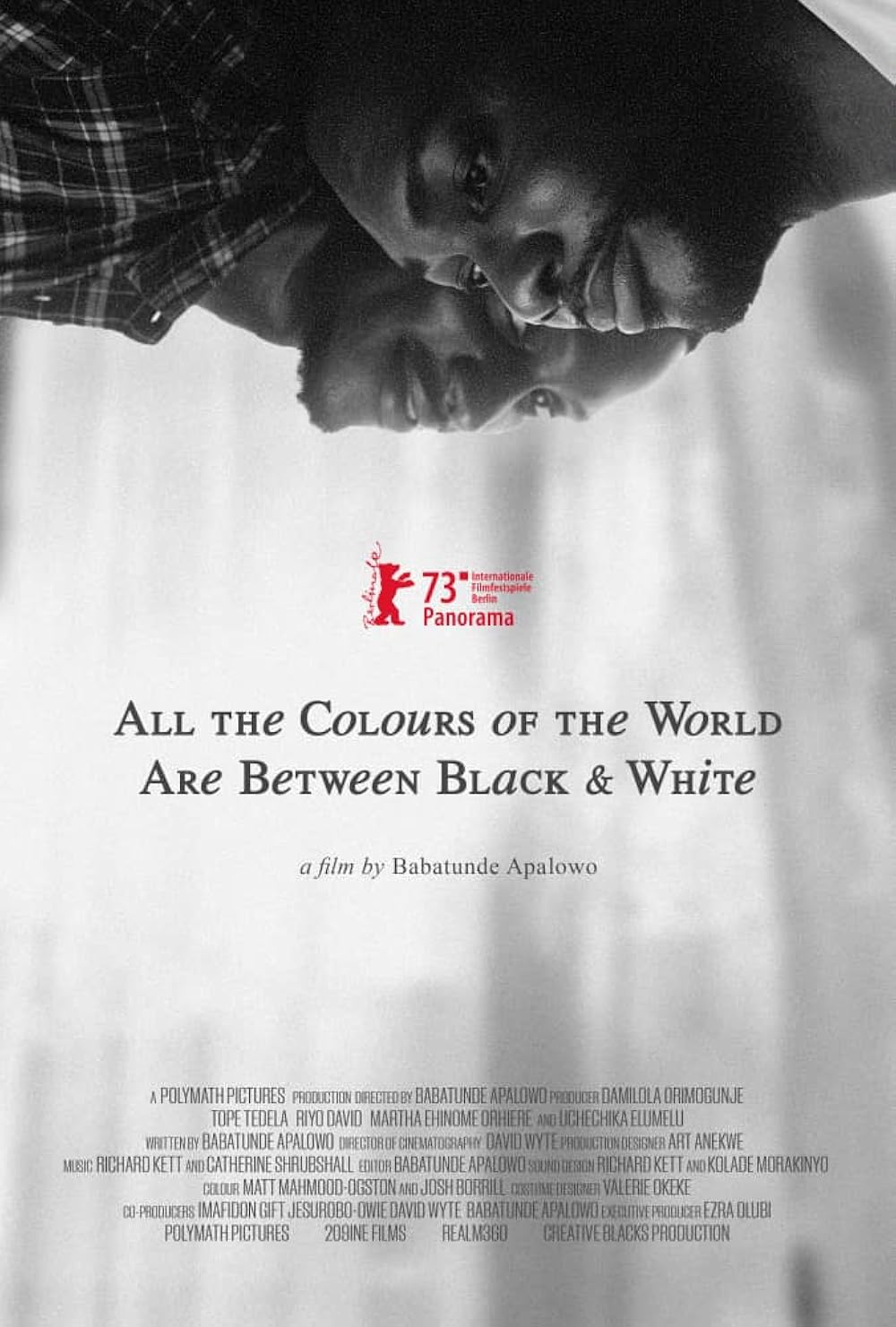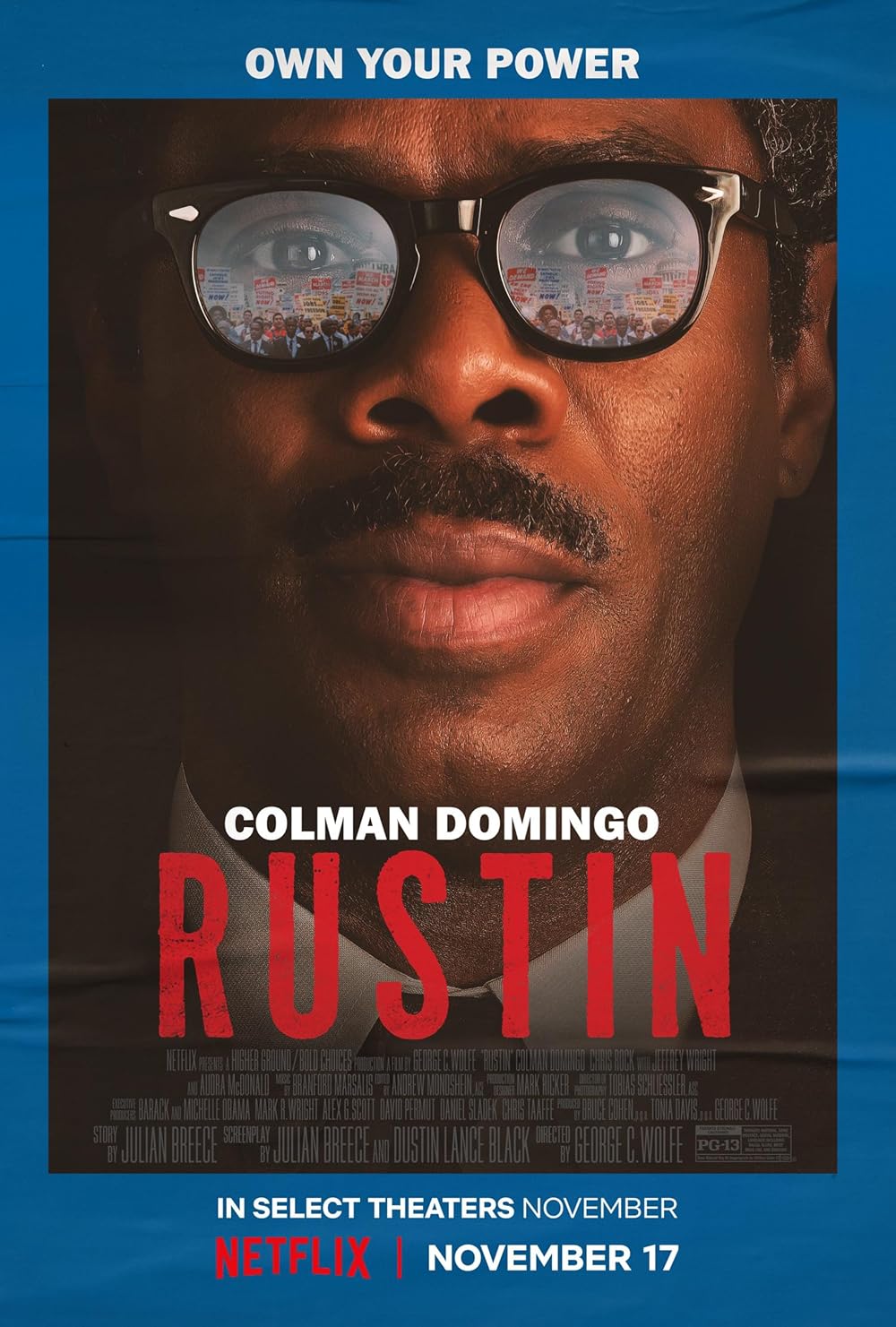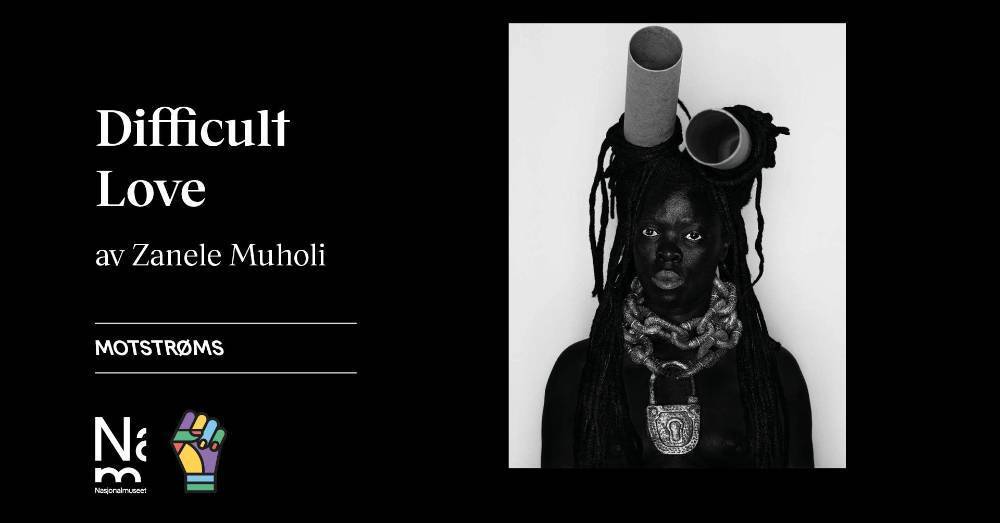
Here’s a list of Black queer films we have compiled for you to watch this month.
Here’s a list of Black queer films we have compiled for you to watch this month.
Historically, June has been designated as the month dedicated to celebrating the LGBTQ+ community globally. Also known as Pride Month, various festivals and events are curated to honor this community, making it the perfect time to also celebrate films that explore LGBTQ+ stories.
From ground-breaking documentaries to emotionally stirring short films and vibrant feature-length films, these works have boldly portrayed the lives of a marginalized community—consistently giving them a voice and carving out space for them in global cinema.
Here’s a list of Black queer films Get Unruly has compiled for you to watch this month.

Inxeba (The Wound)
South African actors Nakhane Touré and Bongile Mantsai shine in this daring film about Xolani (played by Touré), who joins the men in his community to initiate a group of boys into manhood—a process known as ulwaluko. There, he rekindles a relationship with Vija (played by Mantsai). However, in an environment filled with hostility towards homosexuality, their love story is challenged by societal expectations and the people around them.
Directed by John Trengove, the film beautifully captures the tender relationship between the characters while also exploring the fear, pain, and uncertainty that come with living in a homophobic society. Overall, *Inxeba* is a rare queer African film that authentically represents the South African LGBTQ+ community and critiques the use of culture as a tool for perpetuating violence against them.

Ife
Uyaiedu Ikpe-Etim’s 2020 short film, starring Uzoamaka Aniunoh and Cindy Amadi, tells the story of two Nigerian women, Ife and Adaora, who fall in love over the course of a three-day date. Amidst their blossoming romance, they are soon confronted with the harsh realities of being lesbians in Nigeria. With a runtime of 38 minutes, Ikpe-Etim takes viewers through the honeymoon phase of a newly formed relationship and skillfully explores the challenges of being in a same-sex relationship within a limited timeframe.
The challenges faced by the Nigerian LGBTQ+ community are numerous, but the director manages to craft a well-rounded narrative without cramming too much information into the film, resulting in a succinct portrayal of the realities of same-sex relationships in Nigeria. These challenges extend beyond the screen, as the film’s release was not approved by the National Film and Video Censors Board (NFVCB)—a reminder that in Nigeria, it is not only same-sex relationships that are forbidden, but also any form of art that depicts or affirms the LGBTQ+ community.

Dakan
Touted as the first West African film to tackle homosexuality, Mohamed Camara’s 1997 film Dakan is one of the foremost African queer films boldly centered on a relationship between two men. Unlike some African films that have been homophobic or portrayed queer people as predatory, or framed homosexuality as a disease or a demonic influence, Dakan simply tells a heartfelt story in which the main characters — Manga and Sori — aren’t ashamed of their sexuality. Instead, they unapologetically choose each other despite opposition from their families and community. The film also explores conversion therapy and discusses how homophobic laws force queer Africans to flee their countries in search of safer spaces.
While explaining his motivation for making Dakan, Camara said, “I made this film to pay tribute to those who express their love in whatever way they feel it, despite society’s efforts to repress it.” Years after Dakan was released, African queer films are still being banned — and in some African countries, remain non-existent — revealing that the fight against African queer cinema is as prominent as ever.

Rafiki
Rafiki, the 2018 film by Kenyan filmmaker Wanuri Kahiu, is a stunning queer story that centers on the relationship between Kena (played by Samantha Mugatsia), a medical student, and Ziki (played by Sheila Munyiva), a dancer. They begin as friends, but their bond quickly transforms into a romance. With their fathers contesting against each other in a local election and the law criminalizing same-sex relationships, the two must keep their love a secret in order to survive. When they are ambushed by an angry mob, their parents separate them, but a few years later, they are reunited.
The film was initially banned in Kenya for its “hopeful and positive” portrayal of a lesbian relationship. However, when it was eventually screened in the country for seven days, tickets sold out. Rafiki also enjoyed notable success on the festival circuit. It became the first Kenyan film to be screened at the Cannes Film Festival (2018), appearing in the Un Certain Regard section. It went on to win Best Narrative Feature at the Seattle Queer Film Festival and received the Silver Hugo award at the Chicago International Film Festival.

Ti E Nbo
Directed and written by Chinazaekpere Chukwu, Ti e Nbo explores the tensions that arise when 19-year-old Feranmi (Nonso Ekemezie) struggles to confront his feelings for his friend Tolulope (Chidi-Maha Grey). When Feranmi’s father (Brutus Richard) discovers these feelings, he goes to extreme lengths to force his son back to what he considers “normal.” The film offers a poignant exploration of conversion therapy culture and is inspired by real-life experiences.

Kapana
Set in Namibia, a country where gay relationships are stigmatised, Philippe Talavera’s Kapana tells the story of a forbidden romance. George, an openly gay insurance broker, meets Simeon, a kapana seller struggling to accept his sexuality. As they fall in love, they must confront societal obstacles and fight to persevere.
Although the film has been criticised for its amateur execution, it has been praised as the first Namibian queer film and lauded for its heartfelt storytelling and stunning cinematography.

All the Colours of the World Are Between Black and White
Set in Lagos, Nigeria, Babatunde Apalowo’s stunning debut, All the Colours of the World Are Between Black and White, remains one of the best Nigerian queer films released in recent times. The film, which stars Tope Tedela, Riyo David, Martha Orhiere, Uche Chika Elumelu, and Floyd Anekwe, tells the story of Bambino (played by Tedela) and Bawa (played by David), who meet during a photography competition and develop feelings for each other. However, society’s perception of homosexuality and their personal struggles stand in the way of their blossoming relationship.

Nyame Mma (Children of God)
In Joewackle J. Kusi’s Nyame Mma, the subject of grief is explored through two lenses: love and death. When Kwamena returns to his hometown after his father’s death, he is forced to confront a town that once rejected him for being queer, while mourning both his father and a lost love. Kusi guides viewers through the different stages of grief that Kwamena experiences—especially in moments when he fully mourns his father and when he reunites with his ex-lover, only to discover that he is marrying a woman due to societal pressure. The film also highlights the lack of spaces for queer people to grieve openly and authentically.

Shall We Meet Tonight?
Adaora (Goodness Emmanuel) and Susanna (Uzoamaka Onuoha) are secret lovers in Shall We Meet Tonight?, a short film written and directed by Wapah Ezeigwe. Shot in Enugu, the film follows Adaora as she tries to navigate her secret relationship with Susanna while being betrothed to Ejiofor (Jasperwillis Ebuka).
Like most films on this list, Shall We Meet Tonight? portrays the turmoil of same-sex relationships in Nigeria, the quiet sacrifices queer people make to keep themselves safe, and the reality of living with the fear that they may never be accepted or seen.

The Blue Caftan
Lubna Azabal, Saleh Bakri, and Ayoub Missioui star in this Moroccan film directed by Maryam Touzani. The Blue Caftan follows Mina and her closeted husband, Halim, who run a caftan store in Salé, Morocco. When the couple hires Youssef, a young apprentice, Halim’s long-suppressed desires begin to surface.
Although Mina is aware of her husband's sexuality, she becomes jealous as she observes the growing attraction between Halim and Youssef. However, as time passes and her health deteriorates, the trio form a close bond.
The Blue Caftan has been praised for skilfully weaving themes of hidden desire and unconditional love, as well as for the captivating performances by its cast. The film won the FIPRESCI Prize in the Un Certain Regard section at the 2022 Cannes Film Festival.

14 Years and A Day
Uyaiedu Ikpe-Etim and Ayo Lawson’s short film 14 Years and a Day revolves around a queer woman who seeks solace after a fight with her partner of 14 years. In a bid to find comfort, she meets a stranger who forces her to confront everything she knows about herself and her relationship.
The film broadly explores the theme of self-understanding and dreamily portrays queer freedom in a country where it is fiercely opposed. The film stars Adunoluwa Osilowo, Alexandra Maduagwu, and Fola Francis.

Rustin
Although primarily a film about the civil rights movement in 1960s America, George C. Wolfe’s Rustin weaves queerness into its narrative through its main character, Bayard Rustin (Colman Domingo). In the midst of the civil rights struggle, Martin Luther King Jr. is accused of having a sexual relationship with the openly gay Rustin, leading to Rustin’s resignation.
Despite the obstacles he faced, Rustin still organized the March on Washington, gathering 250,000 people in front of the Lincoln Memorial. This demonstration birthed King’s iconic “I Have a Dream” speech.
Months later, the Civil Rights Act was enacted, and Rustin found love once again. Overall, the film is a stirring portrayal of one of the unsung heroes of the civil rights movement, offering an intimate look into Rustin’s life. Beyond fighting for people’s rights, Rustin was also fighting for love and to be wholly accepted.

Saturday Church
Loosely based on Art & Acceptance, an LGBTQ+ outreach program in New York, Damon Cardasis’ debut film centers on self-discovery and self-acceptance. In the film, 14-year-old Ulysses is bullied at school and mistreated by his aunt for his feminine characteristics.
However, when he discovers Saturday Church — a program that provides food and shelter for the LGBTQ+ community — he finds friendship and is introduced to voguing. Motivated by his mother’s unconditional love, Ulysses pursues his voguing dreams. The film stars Luka Kain, Margot Bingham, Indya Moore, and others.

Moonlight
It’s hard to make a list of some of the best queer films to watch without mentioning Barry Jenkins’ Moonlight. Based on Tarell Alvin McCraney’s unpublished semi-autobiographical play In Moonlight Black Boys Look Blue, the award-winning film presents the main character, Chiron, through three stages – Little, Chiron, and Black – each of which captures his difficult childhood, his tumultuous relationship with his mother, the bullying he endures because of his sexuality, and the emotional abuse he suffers.
Moonlight expertly explores what a Black gay man from an impoverished community experiences. In the final scene, when Chiron remembers himself as a child standing on the beach in the moonlight, viewers are reminded of the childhood that was stolen from him. At the 89th Academy Awards, the film became the first LGBTQ+ film to win Best Picture.

Naz & Maalik
Naz & Maalik, the 2015 film written and directed by Jay Dockendorf, is an American drama that tells the story of Naz and Maalik, two closeted teenagers who move from being friends to navigating a highly secretive romantic relationship. While spending the day together, the boys engage in petty schemes and hide in alleyways to steal kisses, but their actions set an FBI operative on their trail.
Due to the boys’ secret meetings in dark alleys and their tense demeanour, the operative suspects they are radicalised Muslims. When she finally questions them, they both give different alibis, all of which threaten to unravel their secret relationship and expose them to their families.

Difficult Love
This thought-provoking documentary by Zanele Muholi and Peter Goldsmid showcases the lives of Muholi and other lesbians in South Africa. Through the images taken by Muholi, she tells the stories of different women and captures the love in their relationships. Some of these images include nudes, young Zulu couples dressed in traditional costumes, a “homeless, socially excluded” lesbian couple, a portrait of Victor Mukasa—the gay human rights leader from Uganda—and pictures of Zanele and her partner.
The documentary also features interviews with Muholi, her friends, and colleagues, who speak about her life and work as a photographer in the South African GLBT community. It also explores the political terrain she must navigate to bring her work to life.

The Watermelon Woman
Released in 1996, The Watermelon Woman chronicles the journey of Cheryl as she attempts to make a documentary about a Black actress who is loosely credited in a film as “The Watermelon Woman.” Written, directed, and edited by Cheryl Dunye—who also plays the lead role—it is the first feature film directed by a Black lesbian and is considered a landmark in New Queer Cinema.
In the film, Cheryl is an African-American lesbian interested in movies from the 1930s and 1940s that feature Black actresses. Inspired by the lack of recognition these actresses receive, she decides to tell the story of Fae Richards, an actress who was not fully credited in the fictional film Plantation Memories.
The Watermelon Woman is a witty and poignant portrayal of Black lesbian identity by a Black lesbian filmmaker. It also underscores the importance of properly crediting actors, regardless of their skin color or sexual orientation.

Country Love
Returning to his home after fifteen years, Kambili tries to reconcile with his estranged family and rebuild his relationship with his sister and an ex-lover, but soon realizes that his sister still has not accepted him and that his ex-lover is now engaged to a woman. In Wapah Ezeigwe’s Country Love, the femme queer identity is placed at the center of the story.

Stories of Our Lives
Created by the Nest Collective, a Nairobi-based arts collective, Story of Our Lives is an anthology of five films — Ask Me Nicely, Run, Athman, Duet, and Each Night I Dream — that explore stories of LGBTQ+ life in Kenya. Upon its release, the film was banned in Kenya but enjoyed a successful run on the international festival circuit.

Egungun (Masquerade)
In Olive Nwosu’s Egungun, the talented filmmaker brings Salewa’s story to life. Salewa (Sheila Chukwulozie), a queer woman, returns to Nigeria for her mother’s funeral. There, she is forced to stay in a community she feels disconnected from and meets her childhood friend, Ebun (Teniola Aladese). The film explores how she confronts her past trauma and begins to heal from it.
Comments